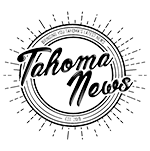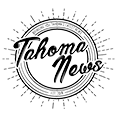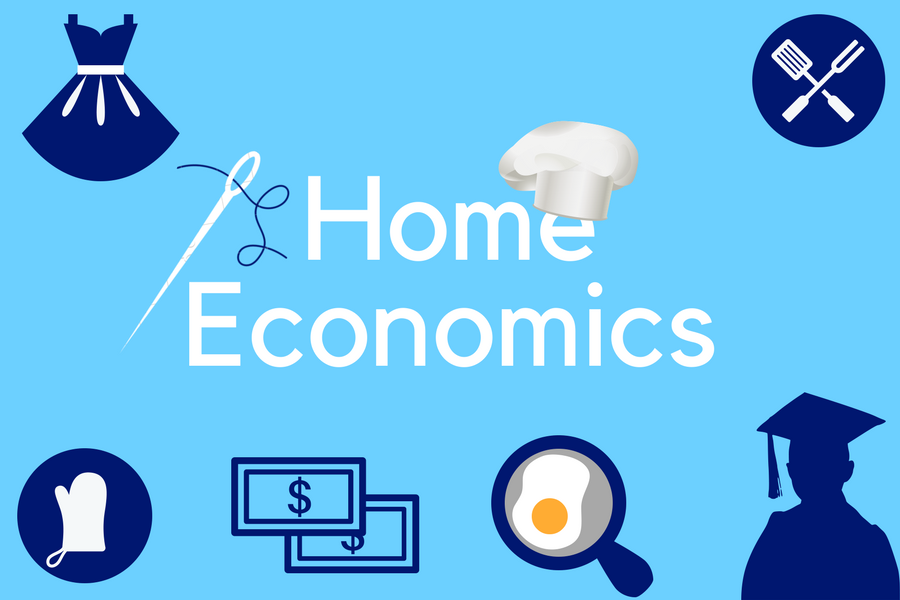What is Home Ec?
Home Economics, also known as Home Ec, is a series of courses that teach students basic life skills such as budgeting, cooking, personal finance, home management, and more. Through the efforts of Ellen Richards, and the Lake Placid Conference, Home Ec was officially introduced to America’s school curricula in the late nineteenth century. The Lake Placid Conference was led by Richards, and it was a conference made up of home economists that believed domestic principles should be taught through scientific application. Conference members worked tirelessly to advocate the expansion of these courses in universities, and secondary schools. In the year 1908, the conference members founded the, “American Home Economics Association,” to provide funding for Home Ec courses across the country.
Although Home Ec was implemented into America’s curricula by the late nineteenth century, it didn’t become popular until students began expressing genuine interest in these classes.
Home Ec: Pros
There are many advantages to having Home Ec courses in schools. Home Ec classes teach students life skills that they may need in the future, such as cooking, child development, living independently, finance, home management, and more. Having these skills for the future is dire, as it prepares students for adult life, and the hardships they might face. Some Home Ec classes also provide possible career study, and limitless opportunities for students to find their passion in life, or to gain important skills for the future. Furthermore, Home Ec is inclusive to everybody—regardless of age, ethnic background, gender, etc., so everybody can get to enjoy these classes just as equally.
Home Ec: Cons
Although there are multiple advantages, there are also many disadvantages to having Home Ec courses in schools. These concerns mostly tie into economic, and safety downsides. Having Home Ec classes, such as culinary classes, would require a lot of funding from the school in order to buy necessities such as ovens, ingredients, and utensils. At Tahoma, this is surely possible, but at other schools, it may be more difficult depending on funding. Additionally, renovating or building new classrooms into the building takes a high toll off of people’s tax money. Citizens wouldn’t be too happy about that. Moreover, there are also safety downsides regarding important safety concerns. Having Home Ec classes could pose a high risk for students’ safety, and the school. Many safety precautions would have to be established, but in the end, it’d be up to the students to behave safely or not.
Should Tahoma introduce more Home Ec classes?
When looking at all the advantages and disadvantages, the good outweighs the bad. The bad things are temporary, but the good things last forever. Home Ec classes are important, and they provide students with beneficial opportunities, and vital life skills for the future. At Tahoma, there are a few Home Ec classes such as personal finance, child development, budgeting, and more. Although these classes are available, many students are eager for more interactive Home Ec classes.
“I think they should introduce more classes. I’d love to take a culinary class, or a home maintenance class. I was disappointed to find out that out of the variety of classes, there wasn’t a culinary class. Culinary is a useful life skill, especially for those who aren’t able to learn at home,” Merissa Llamas, a freshman at Tahoma, discussed.
It isn’t only Llamas that believes more variety of Home Ec classes should be introduced at Tahoma. While asking students during Power Hour, multiple students expressed their desires for classes such as crocheting or sewing, home design, meal preparation, and more. Tahoma should introduce more Home Ec classes in school. Having Home Ec classes provide guidance for students beyond high school, and delve into the important necessities needed to survive in the real world. Students need to learn basic and vital life skills to help them thrive during their lives after high school, and Home Ec classes are just the solution for that.









Kendall • Jan 28, 2025 at 6:28 am
This article is very inspiring and helpful! Thank you!